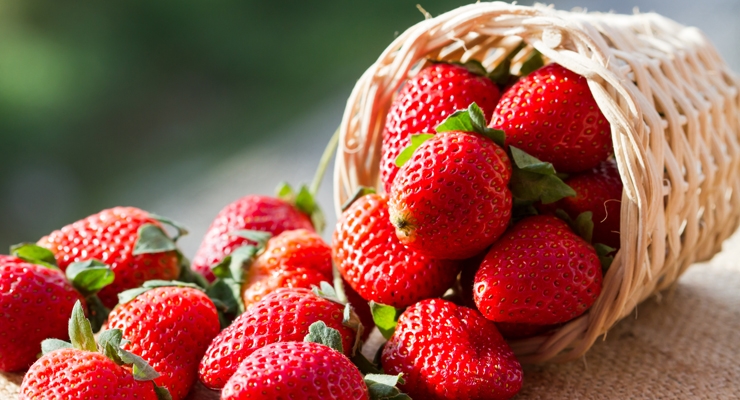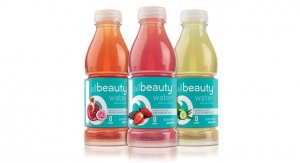Saba Sassouni, MS, RD, CDN, Lead Dietician of Zone Manhattan05.08.15
Strawberries, Fragaria × ananassa, have so many different culinary uses. Whether fresh or frozen they are used in jams/jellies, fillings, toppings, salads, marinades, yogurts, desserts, and the list continues. They are very fragrant too, and are therefore used in many skin products.
Strawberries are known to be delicious but they are very healthy too. They contain fiber, vitamins, minerals and antioxidants. They contain just as much vitamin C as citrus fruits. They are considered a low glycemic index fruit even though they have a sweet taste. They contain disease-fighting polyphenols called anthocyanins.
The achenes, which rest on the skin and have a seed like appearance, contain a trace amount of essential fatty acids, and contain up to 11% of the polyphenol content of the fruit despite their small size. Anthocyanins are actually what give strawberries and other red/purple fruits and vegetables their beautiful colored pigment. There are more than 500 different anthocyanins. These naturally occurring substances are abundant in fruits and vegetables and are known for their potential health benefits.
In a recent study published by The Journal of the Federation of American Societies for Experimental Biology (FASEB), anthocyanins consumed from a strawberry source, reduced insulin resistance in individuals. Reducing insulin resistance also minimizes the future risk of type 2 diabetes. In a randomized study, 23 obese adults consumed beverages containing freeze-dried strawberry powder. There were four different amounts distributed from 0 to 40 grams corresponding to ~0-368 micromoles of anthocyanins.
The beverages were fiber controlled and served with a standard meal for all participants. Blood was collected before and after meals. Insulin was significantly lowered after consuming the beverage that contained the highest amount of freeze-dried strawberries. In the adults with higher fasting insulin and greater insulin resistance that drank the 20-gram and 40-gram freeze dried strawberry containing beverage, a significant decrease in peak post meal insulin was seen. However, those with a lesser degree of insulin resistance that drank the 40-gram freeze dried strawberry containing beverage, did not have a significant reduction of peak post meal insulin.
Data support the view that strawberries have a potential role in improving insulin sensitivity in people with insulin resistance. It would be great to see more studies on this subject with a larger number of participants. I would also be curious to see if insulin sensitivity is still improved after consuming a meal with a higher glycemic content instead of a standard meal. There is a lot more research that needs to be done on this topic, but there are many optimistic studies that show numerous health benefits of strawberries.
Saba Sassouni, MS, RD, CDN, has more than 10 years of nutrition experience and serves as Zone Manhattan’s lead dietician. Saba works directly with thousands of Zone Manhattan consumers, assisting them in their meal profile creation to determine the best combination of foods to achieve health and weight goals. Saba is currently affiliated with the Academy of Nutrition and Dietetics, New York State Dietetics Association and the Academy of Nutrition and Dietetics Clinical Nutrition Managers DPG.
Strawberries are known to be delicious but they are very healthy too. They contain fiber, vitamins, minerals and antioxidants. They contain just as much vitamin C as citrus fruits. They are considered a low glycemic index fruit even though they have a sweet taste. They contain disease-fighting polyphenols called anthocyanins.
The achenes, which rest on the skin and have a seed like appearance, contain a trace amount of essential fatty acids, and contain up to 11% of the polyphenol content of the fruit despite their small size. Anthocyanins are actually what give strawberries and other red/purple fruits and vegetables their beautiful colored pigment. There are more than 500 different anthocyanins. These naturally occurring substances are abundant in fruits and vegetables and are known for their potential health benefits.
In a recent study published by The Journal of the Federation of American Societies for Experimental Biology (FASEB), anthocyanins consumed from a strawberry source, reduced insulin resistance in individuals. Reducing insulin resistance also minimizes the future risk of type 2 diabetes. In a randomized study, 23 obese adults consumed beverages containing freeze-dried strawberry powder. There were four different amounts distributed from 0 to 40 grams corresponding to ~0-368 micromoles of anthocyanins.
The beverages were fiber controlled and served with a standard meal for all participants. Blood was collected before and after meals. Insulin was significantly lowered after consuming the beverage that contained the highest amount of freeze-dried strawberries. In the adults with higher fasting insulin and greater insulin resistance that drank the 20-gram and 40-gram freeze dried strawberry containing beverage, a significant decrease in peak post meal insulin was seen. However, those with a lesser degree of insulin resistance that drank the 40-gram freeze dried strawberry containing beverage, did not have a significant reduction of peak post meal insulin.
Data support the view that strawberries have a potential role in improving insulin sensitivity in people with insulin resistance. It would be great to see more studies on this subject with a larger number of participants. I would also be curious to see if insulin sensitivity is still improved after consuming a meal with a higher glycemic content instead of a standard meal. There is a lot more research that needs to be done on this topic, but there are many optimistic studies that show numerous health benefits of strawberries.
Saba Sassouni, MS, RD, CDN, has more than 10 years of nutrition experience and serves as Zone Manhattan’s lead dietician. Saba works directly with thousands of Zone Manhattan consumers, assisting them in their meal profile creation to determine the best combination of foods to achieve health and weight goals. Saba is currently affiliated with the Academy of Nutrition and Dietetics, New York State Dietetics Association and the Academy of Nutrition and Dietetics Clinical Nutrition Managers DPG.

















